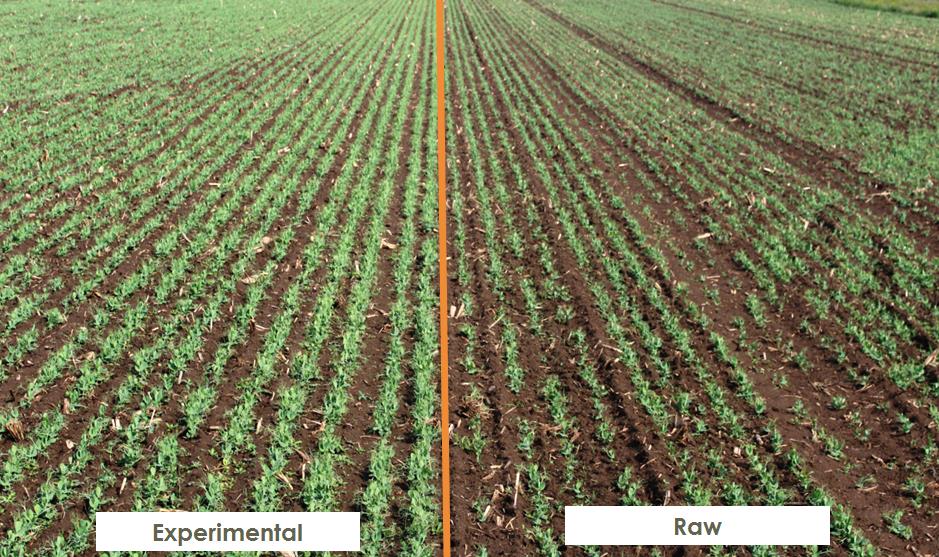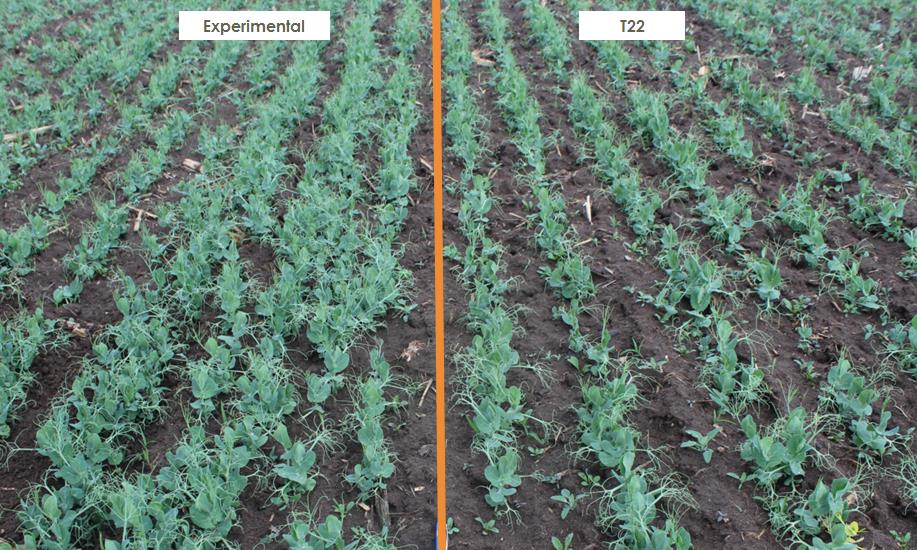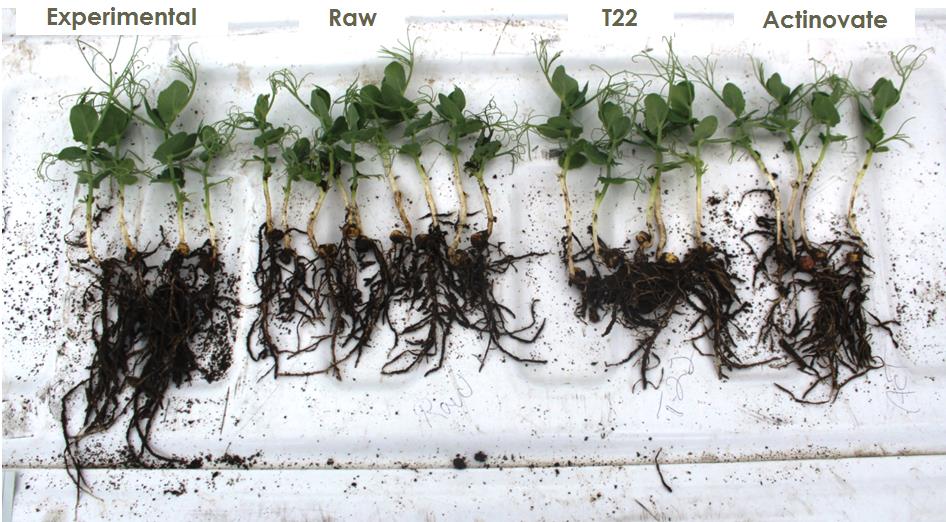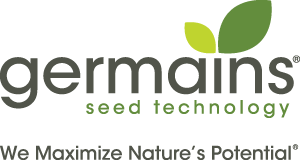Organic Seed Treatments for Peas Protect Crops from Pythium
Finding an organic seed treatment for peas that protect your crop from pythium may be challenging. Have you ever had to double your seed rates per acre hoping you will achieve a decent final stand? Growers in the Pacific Northwest report that they are planting double the recommend rate per acre just to produce a stand of 50% or less! If you are one of many pea growers who is experiencing the devastating damage caused by Pythium, you may want to consider treating your seeds with a biological seed treatment.
Unlike conventional pea growers who can rely on seed treatments such as Maxim Apron to improve their emergence, organic growers are scrambling to find an NOP compliant seed treatment to protect their green and snap pea crops to improve field emergence and to achieve a decent final stand.
Organic Seed Treatments for Peas – Protects Crops from Pythium
After receiving reports from commercial pea producers in the Pacific Northwest about the impact of Pythium on their organic pea crops, Germains is conducting biological seed treatment field trials in the Pacific Northwest in partnership with commercial pea growers. The outcome of the trial thus far is producing favorable emergence results that include:
- Increase in emergence and final stand
- Vigorous leaf and root growth vs. untreated
- Reduced presence of Rhizoctonia in seedlings
Options for Organic Seed Treatments for Peas
The trial consists of three treatments ProBio® T22®, ProBio® Actinovate®, and an experimental biological blend. Nineteen days after planting, there is a visible difference in the overall health and final stand of the trial treatments in comparison to the untreated portion of the field.

The second plot treated with Bioworks T22™ produced favorable results as well. T22 is a preventative biological fungicide for control of plant diseases that grows onto plant roots as they develop. T22 provides protections against root pathogens such as Pythium, Rhizoctonia, Fusarium, Cylindrocladium and Thielaviopsis. T-22 HC contains live spores of a microbe that must be used before disease onset. T-22 HC becomes active in soil or on plants when temperatures are above 50°F and may not be effective in field conditions where temperatures remain cold.

The third plot treated with Actinovate also improved emergence and the crop vigor. If you are planting in a climate where soil temperatures fluctuate or dip below 50°F, Actinovate may be a better option for your growing region. Actinovate is comprised of beneficial bacteria Streptomyces lydicus that protects plants from many common foliar and soil-borne diseases such as Botrytis, Pythium, Rhizoctonia, Fusarium, Phytophthora, Verticillium, and more. The product produces several by-products to aid in plant health including siderophores and chitinase.
Compared to the raw, the three biological treatments showed significant improvements in plant and root vigor with minimal to no development of Rhizoctonia in the root structure. If you are an organic pea grower who is looking for a solution to protect your peas for soil-borne diseases, we highly recommend that you consider treating your seeds with one of Germains biological seed treatments.
Contact Us for More Information
If you are interested in more information about the experimental treatment, please contact our Sales team for details and pricing.
